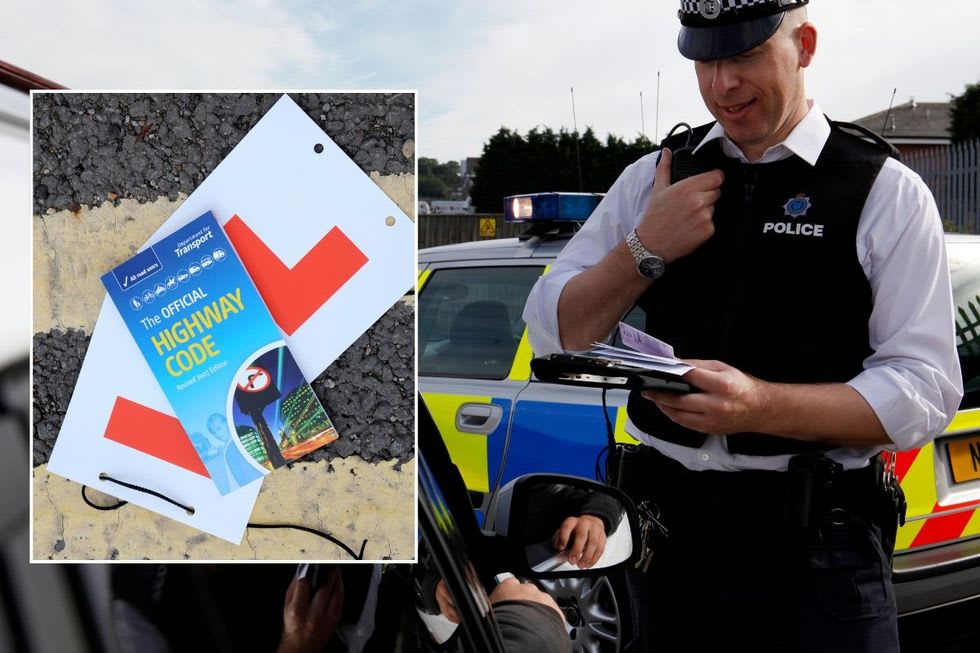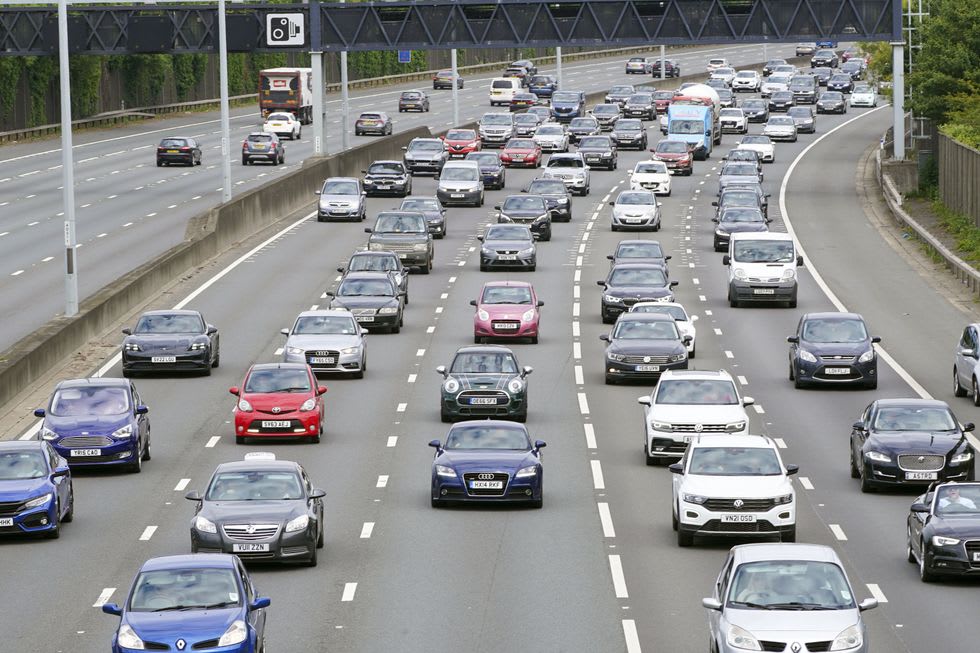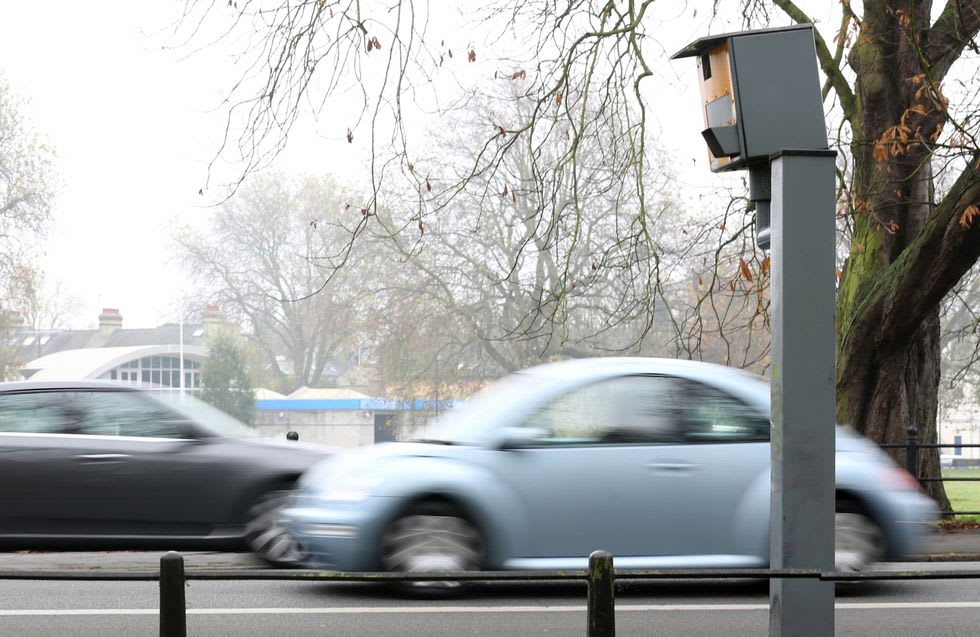DVSA issues warning as millions face driving bans and prison sentences for breaking Highway Code
The Driver and Vehicle Standards Agency has cautioned drivers that they risk facing criminal charges and significant fines if they flout the rules of the road.
Following a social media announcement, the agency has warned that many rules in the Highway Code are legally binding, and drivers could be prosecuted if they break them.
The authorities have warned motorists that flouting regulations could lead to points on their licence, hefty fines, a driving ban, or even imprisonment for severe offences.
**READING THIS ON OUR APP? GET IT NOW FOR THE ULTIMATE GB NEWS EXPERIENCE**
This caution is included in the DVSA's "Stay Safe. Drive Smart" initiative, which seeks to boost road safety knowledge for drivers in Britain.

PA/GETTY
The Highway Code sets out legal requirements that drivers must adhere to.
On X, the agency posted: "Certain rules in the Highway Code are legally binding. Ignoring them could lead to fines, points on your licence, driving bans, or imprisonment. Pay attention to 'must'/'must not' and 'should'/'should not':"
"Must" and "must not" rules are the law. "Should" and "should not" recommendations can be referenced in legal proceedings. Keep safe. Drive responsibly. Regardless, prioritising safe driving is paramount before you begin your trip. This way, we can ensure Britain's roads are safer for all users.
The Highway Code offers two kinds of advice, each with a different level of legal standing, based on the particular task at hand.
Regulations that use "must" or "must not" indicate legal obligations. Drivers who don't adhere to these instructions are, in effect, contravening the law and committing criminal acts.

PA
Motorists are being reminded to pay attention to the distinction between 'must' and 'should' within the Highway Code.
These legally binding requirements are enshrined in law, and drivers are strongly advised to carefully read the highway code, as each rule is accompanied by references to the relevant legal statutes.
Conversely, regulations employing the terms "should" or "should not" are often viewed as suggestive recommendations, not binding legal requirements.
Drivers shouldn't think this gives them a free pass to ignore the rules, though, as courts can bring up breaches of the code when cases are heard.
This difference implies that although only "must/must not" regulations can immediately lead to criminal charges, there can still be legal consequences for not adhering to "should/should not" advice.
LATEST DEVELOPMENTS:
・Petrol and diesel cars could stay on UK roads for longer as all-electric plans fall apart - 'British brilliance'
・British drivers refuse to move to electric cars as major brands face 'a dangerous cliff edge'
・UK could see launch of self-driving cars under global expansion plans from 'China's Google'
According to rule 144 of the legal guidelines, causing death by driving dangerously could lead to a life sentence and an unlimited fine.
Meanwhile, using handheld mobile devices while driving carries a £1,000 fine and breaches rule 149 of the code, but this can increase to £2,500 for lorries and six penalty points.
Breaking the speed limit, as outlined in regulations 124 to 126, can result in fines for motorists of up to £1,000. This increases to £2,500 if the offence occurred on a motorway. Furthermore, drivers may receive between three and six penalty points on their licence and could even face disqualification from driving.
Driving without valid car insurance can result in unlimited fines and six to eight penalty points, while driving without a valid MOT certificate attracts £1,000 penalties.

PA
Drivers can be fined for speeding, which breaks rules 124 to 126 of the Highway Code
Traffic light violations are detailed under rule 175 and carry £1,000 fines and three penalty points, with courts given discretionary powers to disqualify offenders.
Even seemingly minor infractions like seatbelt offences incur £500 fines under rules 99 to 102, demonstrating the comprehensive nature of enforceable regulations.
A spokesman for BigWantsYourCar.com said: "While the Highway Code is not law in itself, many of its rules are backed by legislation. If a rule includes the words 'MUST' or 'MUST NOT', it means there is a legal requirement behind it. Breaking those rules can result in prosecution, fines, penalty points or disqualification.
"The message is simple, be patient, drive slowly and always leave plenty of space. A few extra seconds could prevent an accident and protect you from points on your licence or a fine."